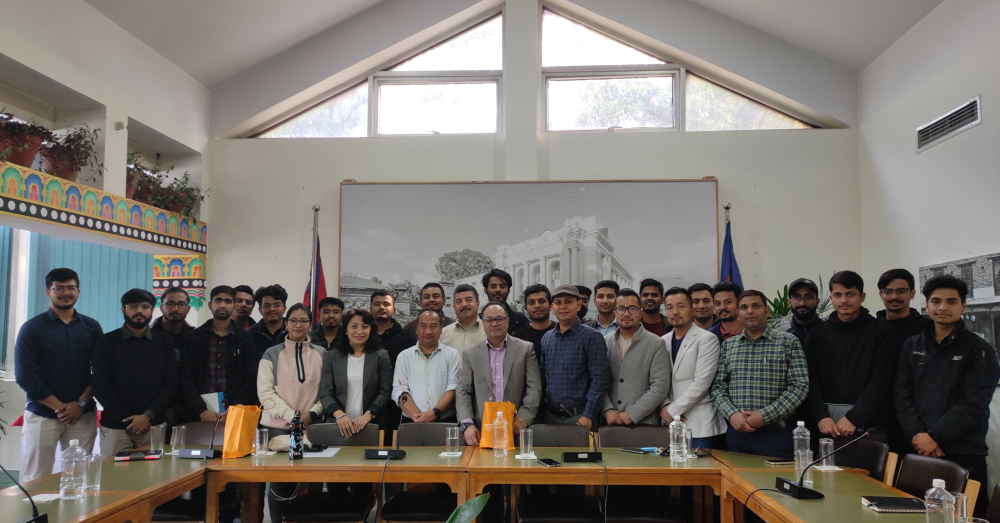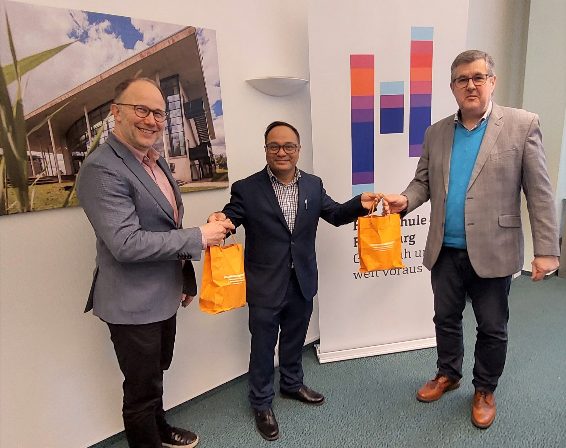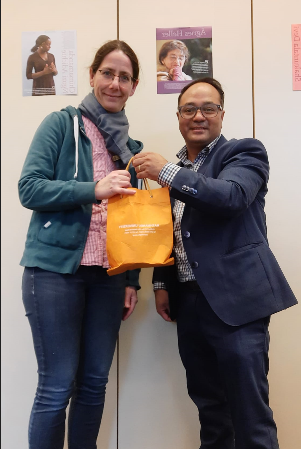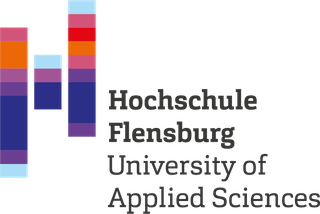Die Hochschule Flensburg und die Kathmandu University verstärken ihre Zusammenarbeit. Auch dank des Einsatzes von Prof. Dr. Rajesh Saiju. Hier berichtet der Professor für Energietechnik und Grundlagen der Elektrotechnik.

Flensburg University of Applied Sciences (FUAS) and Kathmandu University (KU) have reached an understanding and are looking forward to achieving their goals. The MOU between these two Universities was done in 2019, although the foundation for the MOU was laid during the visit of KU from Prof. Dr. –Ing. Rajesh Saiju in 2017. Just after the completion of the MOU, the COVID-Pandemic was not allowing to realise the aims mentioned in the MOU. Amongst others one of the most important philosophies of the FUAS is the technology and knowledge transfer. In contain of that, Prof. Dr. Saiju insisted Prof. Dr. Biraj Thapa in KU to revitalize the MOU in 2022 and it was therefore extended until 2025.
According to the MOU, Prof. Dr. Saiju cooperated the invitation, stay, study and work for a Nepali Master’s degree by research student Nashla Shakya from KU, who had to fight competitively against her contestants in KU and visited FUAS in 2022. She stayed in Flensburg for one semester (March-August). During her stay in Flensburg, she attended the classes of wind energy master course and economy course, and worked in Nissen Biogas GmbH & co. kg where she explored her knowledge in green hydrogen technology and of course experienced the German culture as well as enriched her environment with the Nepali culture too. Flying back to Nepal, her positive reports in KU played a vital role not only in her department but in the whole KU school of engineering.

With the aim to enhance and to strengthen the MOU Prof. Dr. Saiju visited Nepal in the beginning of March 2023. The focus of this visit was to encourage the students from KU to join the FUAS in different courses and also to participate in the student exchange program. Prof. Saiju and Prof. Thapa see great possibilities in cooperation in the field of energy and biodiversity. Prof. Saiju is focused on the sustainable development of Nepal through the application of renewable energies in different sectors, the most reliable medium is the production of hydrogen from hydropower and other renewable energies, so the production of green hydrogen. Nepal has a potential to be a CO2 free country because of the huge availability of hydropower, solar energy and wind power.
Prof. Thapa is leading the projects of hydrogen technology in Nepal and many researchers (PhD and Master Students) are working under his supervision. In this context Prof. Dr. Saiju visited Nepal and conducted bilateral meetings with the KU Professors of many Faculties, Mr. Frank Boomer, manager of GIZ in Lalitpur, Mr. Kulman Ghising, managing director of Nepal Electricity Authority (NEA) and Hon. Ambassador Dr. Thomas Prinz, German Embassy in Kathmandu.
An important step to the technology transfer and joint research is to develop a Panauti renewable sustainable energy park as a real laboratory. The Panauti hydropower plant was constructed in 1961 with a total power of 2.4 MW run by 3 Units and it also has a reservoir. At the moment only one unit is running with around 500 kW power generation (based on the season). The future plan is to integrate around 500 kW of PV peak and make a hybrid power system, which will generate constant green hydrogen. The Hydrogen generated in this way will be used in different sectors like in the field of ammonia, methane, fertilizer, E-fuels production and H2 mobilities, electricity etc. In this laboratory students will conduct their practical works and interested people can simply visit the park. The park will be economically sustained through selling hydrogen for hydrogen buses.

The current VC of KU Prof. Dr. Bhola Thapa expressed his appreciation to the almost transformation of the student Nashla Shakya in her academic endeavour brought by her stay in FUAS. Simultaneously he conveyed his best wishes to the further cooperation and appealed FUAS for further such and other steps as stated in MOU to make the technology and knowledge transfer realisable in both sides.
During the visit with other departments of KU, it demonstrated that there are other faculties like biotechnology and microbiology which are conducting their researches in very interesting subjects and some of them already have mutual goals with some other German institutes. Keeping the biodiversity of Nepal in mind, Prof. Dr. Saiju appeals other faculties of FUAS to join hand in hand to extend their horizon in Nepal as well.
Elaborating the MOU amongst the KU students by Prof. Saiju through the presentations about FUAS, Hydrogen Technology and Wind Turbine for Nepal Optimus 60, Prof. Saiju was frequently asked by many students, mostly showing their interest in the wind energy master course about the probabilities of conducting sandwich programs between FUAS and KU. Ms. Janntje Boehle-Itzen, head of international relations was also present in this meeting online and she explained the process to apply in the FUAS.
After coming back from Nepal, Prof. Saiju met the president Dr.-Ing. Christopher Jansen, vice president Prof. Dr. Peter John and HoD Prof. Dr. Antje Labes of the department “Energy and Biotechnology”. He reported about the visit progress and mentioned the possible areas of mutual cooperation. All of them are very positive about this MOU and see many probabilities for further work. After briefing Prof. Dr. Labes conveyed this message:
“Thank you very much. I am very excited about Prof. Saiju’s report on the opportunities of collaboration, especially with respect to hydrogen power and its possible application in Nepal.”, says Labes.

